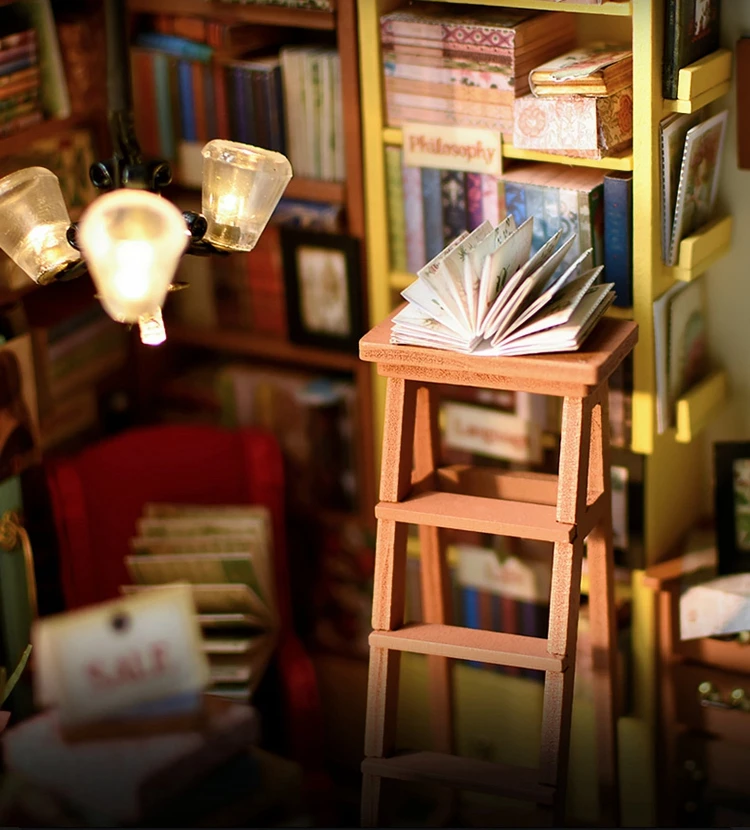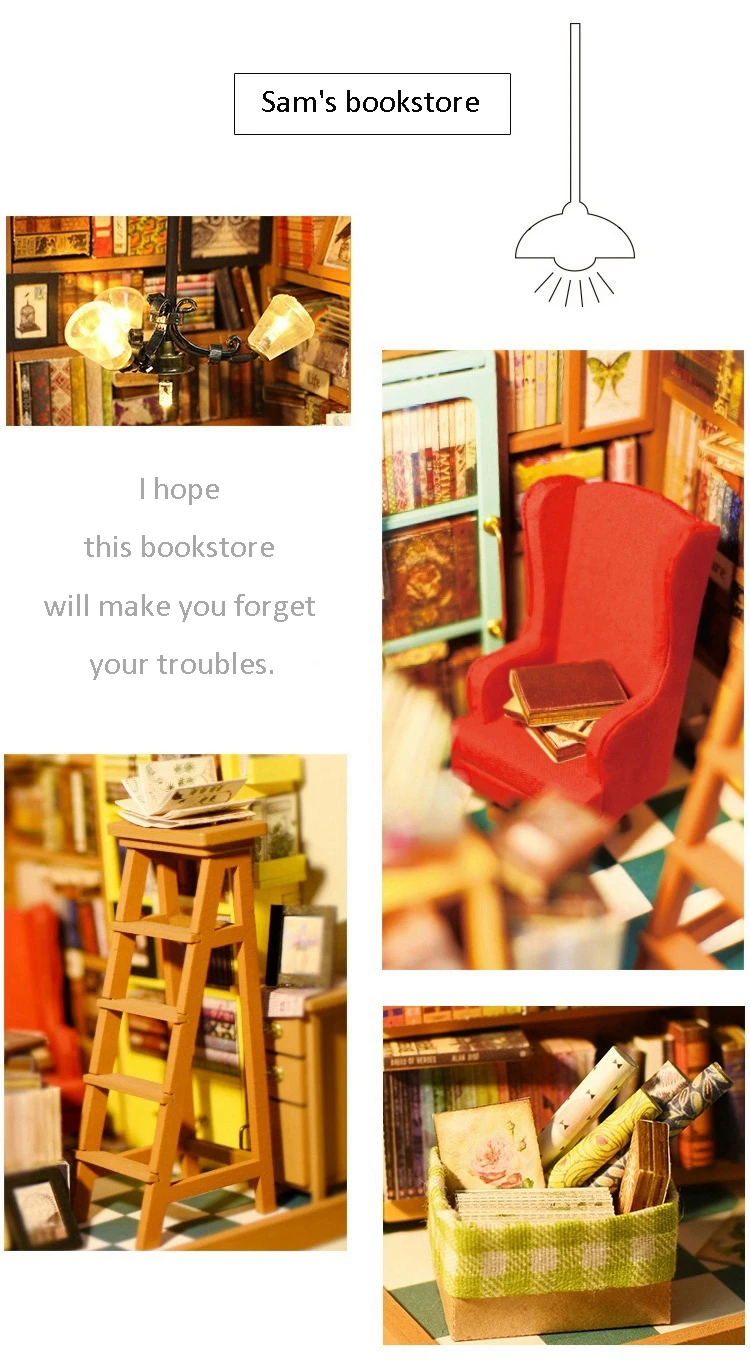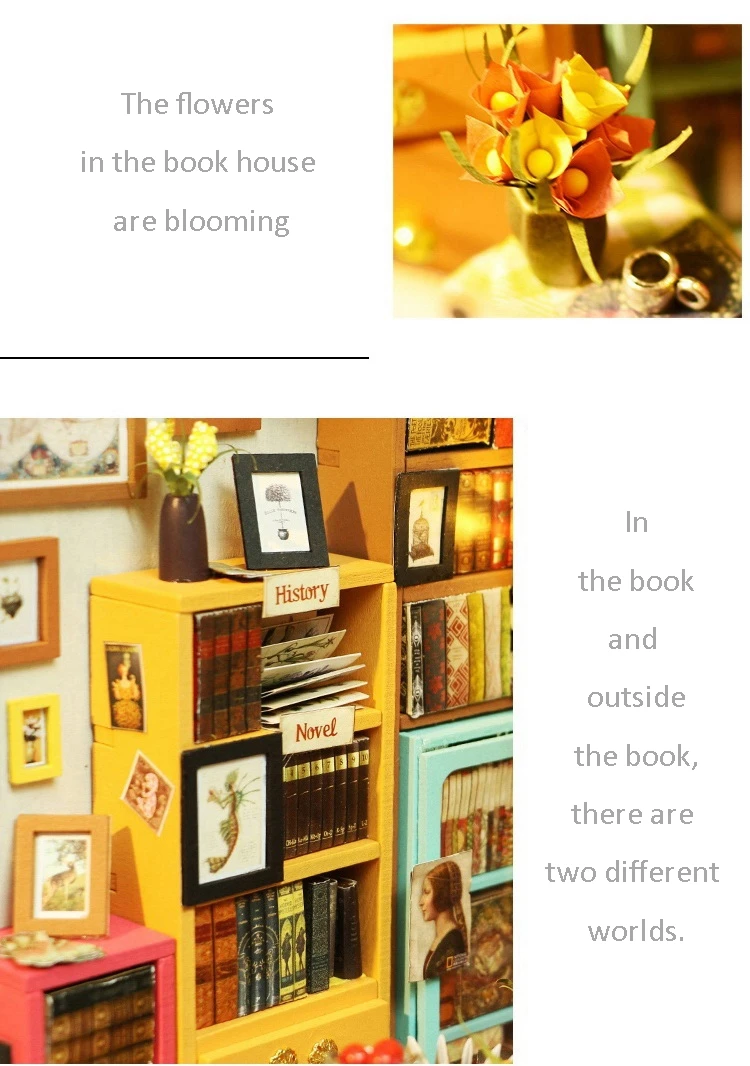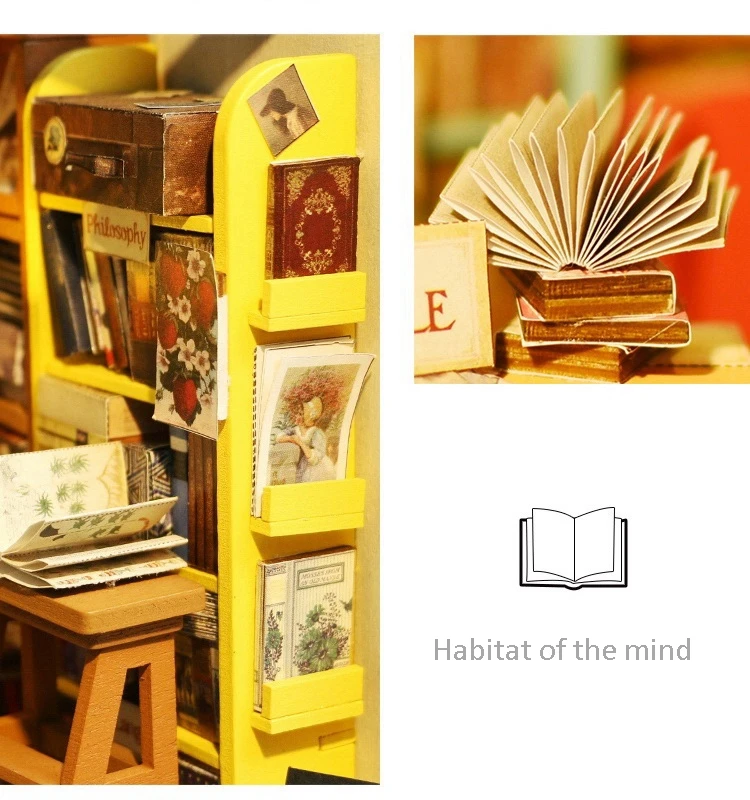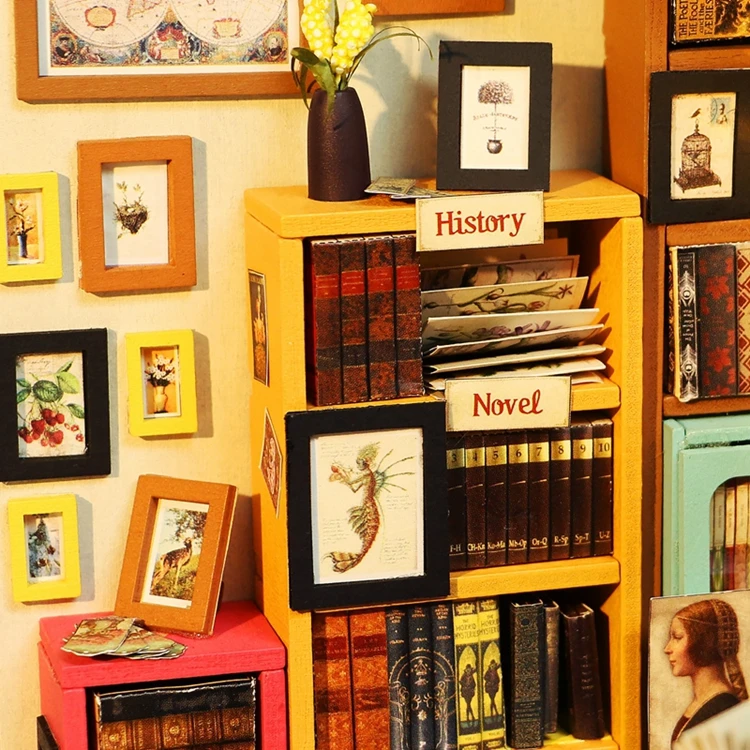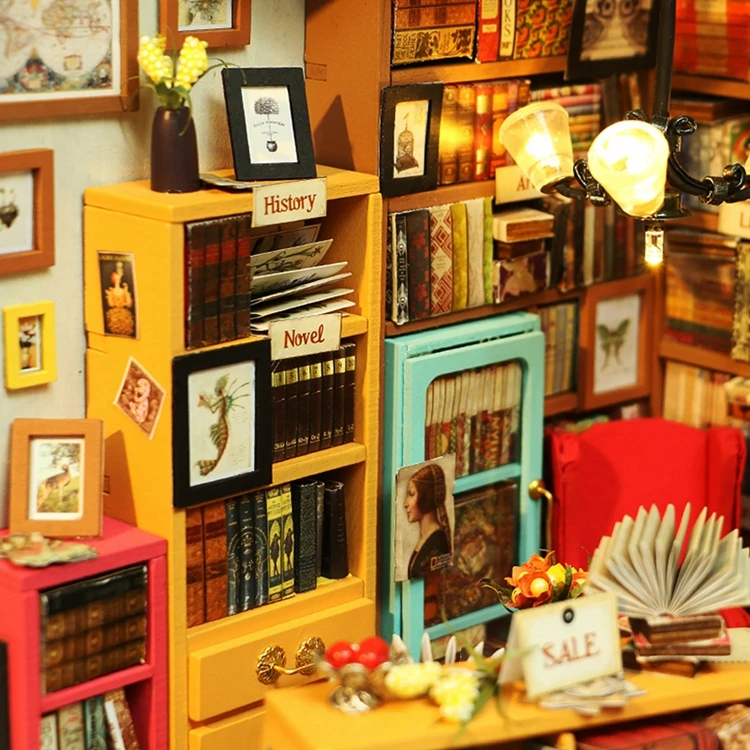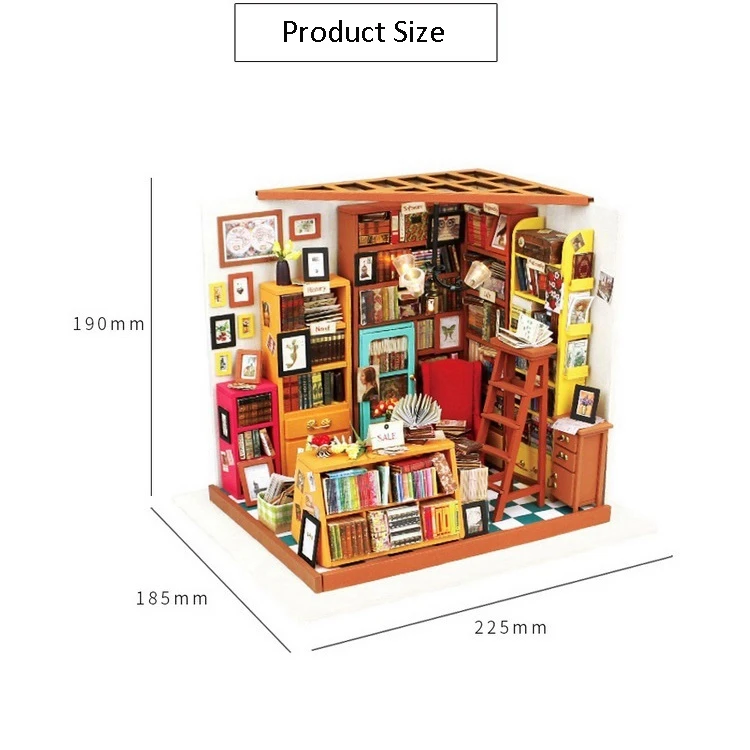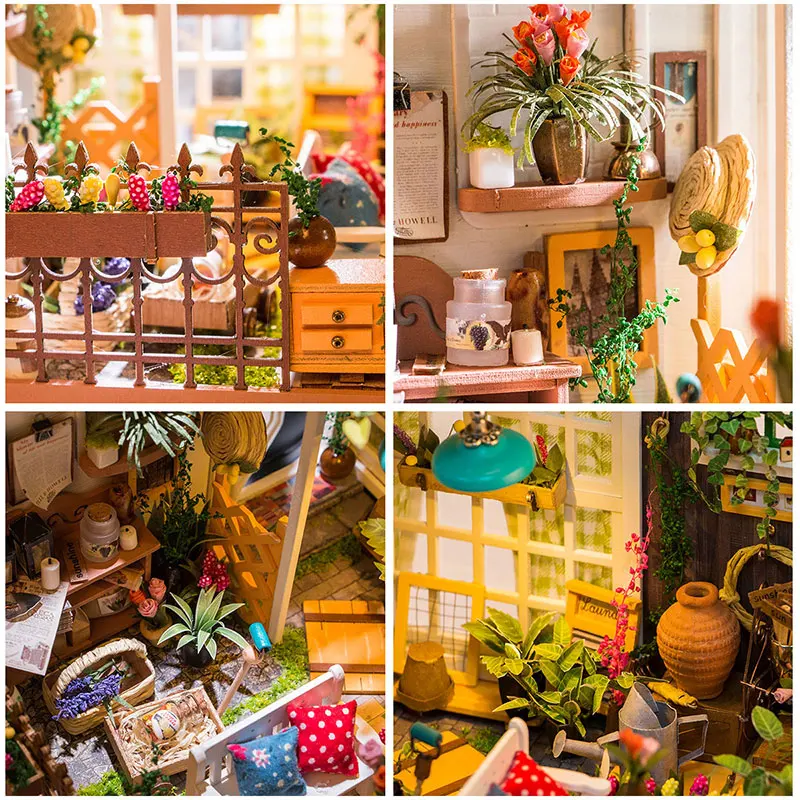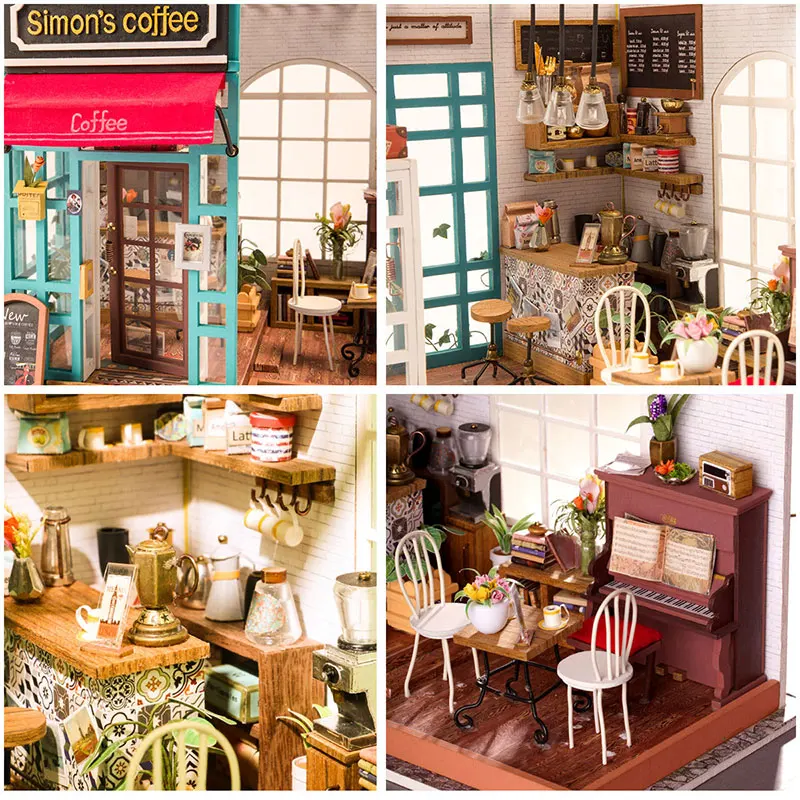For new customers, Enter FIRSTBUY as discount code manually in the shopping cart to get 15% discount
Bulk discounts apply automatically when you add more than one Quantity to Cart.
Fast Priority Shipping to USA : 4 -13 days
Fast Priority Shipping to Canada and Australia :7-12 days

A dolls house is the ideal toy with which to encourage pretend play as it also teaches role play and how to take turns and delay gratification, if played with another child.
Doll houses engage children in imaginary play, which provides important educational benefits for intellectual and social development. When children are engaged in imaginary play they are able to freely investigate and learn about the world around them
Doll houses have been a fixture in the play world of children for hundreds of years, but it’s reasonable to assume that long before then, children were acting out familiar scenes from their lives using props on a small, child-size scale. Archaeologists have uncovered toy-like figures dating back to pre-history. It's clearly a primal urge.
Why have these miniature replicas of our homes and other familiar settings become such a staple in our children’s play? Why does a small facsimile of a bedroom suite or a kitchen table fascinate and engage young children so much? And does the traditional doll’s house still have a place in the contemporary world, where our families and lifestyles are changing so rapidly?
The simple explanation is that doll’s houses - whatever their style or configuration - offer children the chance to explore and act out situations and experiences from real life in a safe and inconsequential way. This doesn’t only mean difficult or stressful situations (for example an scolding parent or a scary dog snapping at the heels of the postman), but also exciting or wished-for occurrences (weddings, birthday parties, Christmas) and most often, everyday situations (cooking tea, putting children to bed, watching television by the fire.) Put simply, children use doll’s houses to rehearse for real life, to understand the world they live in, channelling a very basic human instinct to learn and ultimately, survive.
As with all toys, there are doll’s houses and there are doll’s houses. Many of those on offer today have become heavily gendered towards girls, to the point that boys find themselves excluded from, or disinterested in, doll’s house play. And yet given the space and the encouragement to explore doll’s houses, they can be every bit as rewarding, engaging and important for boys.
SPECS
Brand Name: Robotime
Recommend Age: 12+y
Material: Wood
Item Type: Dollhouses
Gender: Unisex
DOLL HOUSES TYPES
DG107: Kathy's Greenhouse
DG102: Sam's Study Room
DG105: Jason's Kitchen
DG108: Miller's Garden
DG109: Simon's Coffee
DG12: Dora's Loft
DG13: Kevin's Studio
DG101: Lisa's Tailor
DG106: Locus's Sitting Room
DG107: Alice's Bedroom
DG141: Living Room
The benefits of doll's house play

There are many benefits of playing with a doll’s house for children, from the development of fine-motor skills and ideas of classification and materials, to the growth of social skills and emotional intelligence. A doll’s house can also be one of the most enduring and therefore cost-effective toys you’ll buy, and it’s no coincidence that many of them get handed down through the generations. If you are lucky enough to have received an ‘heirloom’ you can invest in new furniture and figures to bring the house up to date. Here we outline some of the developmental benefits of playing with a doll’s house.
Social skills
A doll’s house is one of the few toys where two children can sit next to each other and play alongside each other, rather than opposite or in some kind of group formation. If it’s a big-ish house there will also be enough in front of them to share without too much need for a dispute about who gets to play with the sofa and who gets the bed. In this way, children can learn to play cooperatively and to become aware of the behaviour of their peers in a fun and simple way. It’s also a great way for ideas and stories to develop without the pressure of a potentially critical gaze on them. If you’ve ever noticed how conversations seem to flourish in the car, it’s the same principles at play; the conversation and exchange of ideas is free to grow. Children who play with doll’s houses together, are often children who know how to share and to rub along with their peers.
Emotional intelligence
Acting out the stories and scenes they encounter in everyday life, allows children to understand the family they live in and the world around them. Even if the ‘family’ in the doll’s house is one of mice or bunnies, children are able to explore characters and personalities via their play figures and the dramas that unfold between them. In doll’s house play, children can weave ordinary elements of everyday life into a fantasy narrative, that they can control. Big themes and powerful thoughts and feelings can be more easily processed on the doll’s house scale, giving this kind of play a therapeutic edge. It also allows children to understand the power dynamics within their family: who is in charge, what the consequences are for bad behaviour. It’s also a chance for children to experience being the adult and telling off misbehaving children. Often their punishments are more extreme and than their parents would ever impose!



